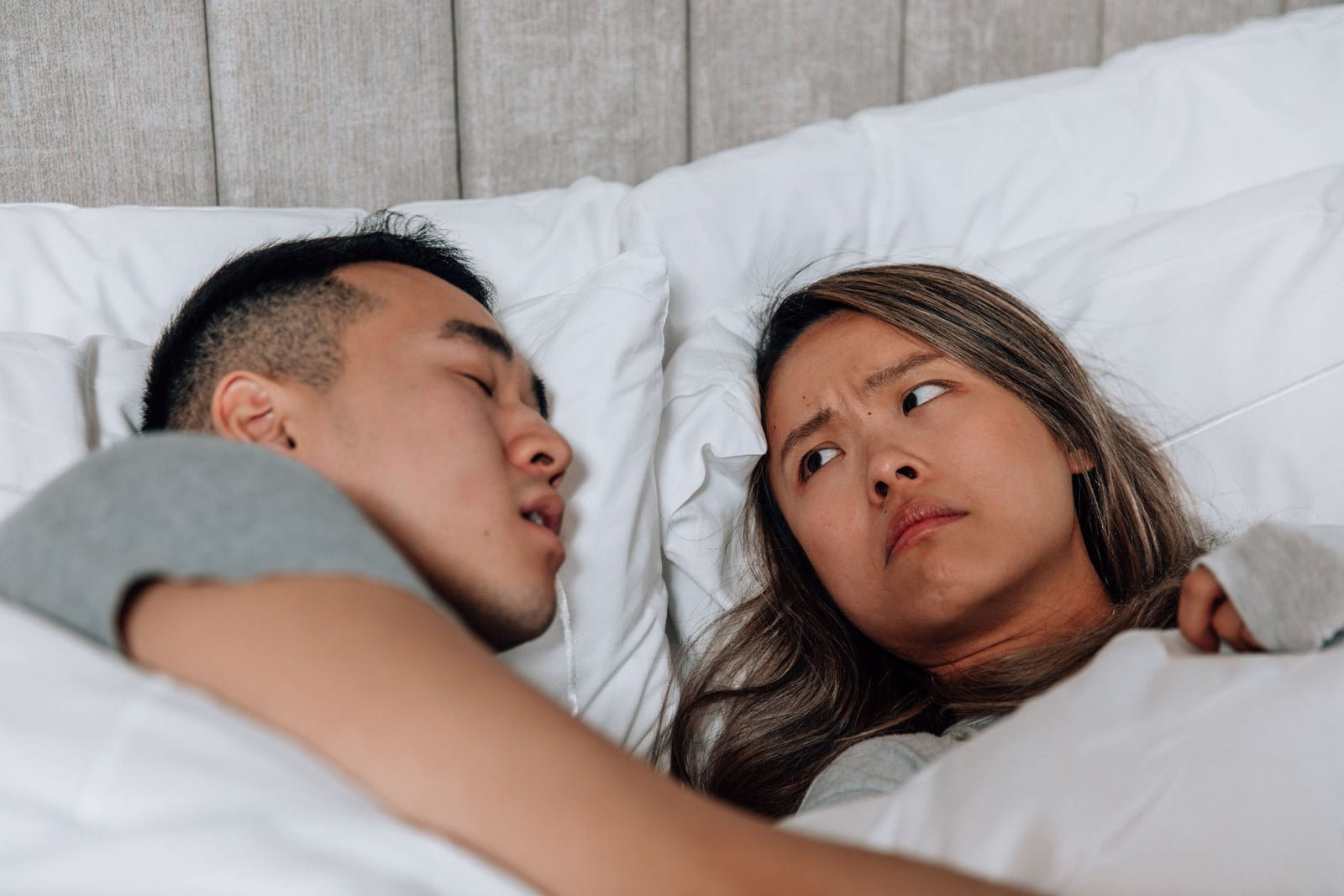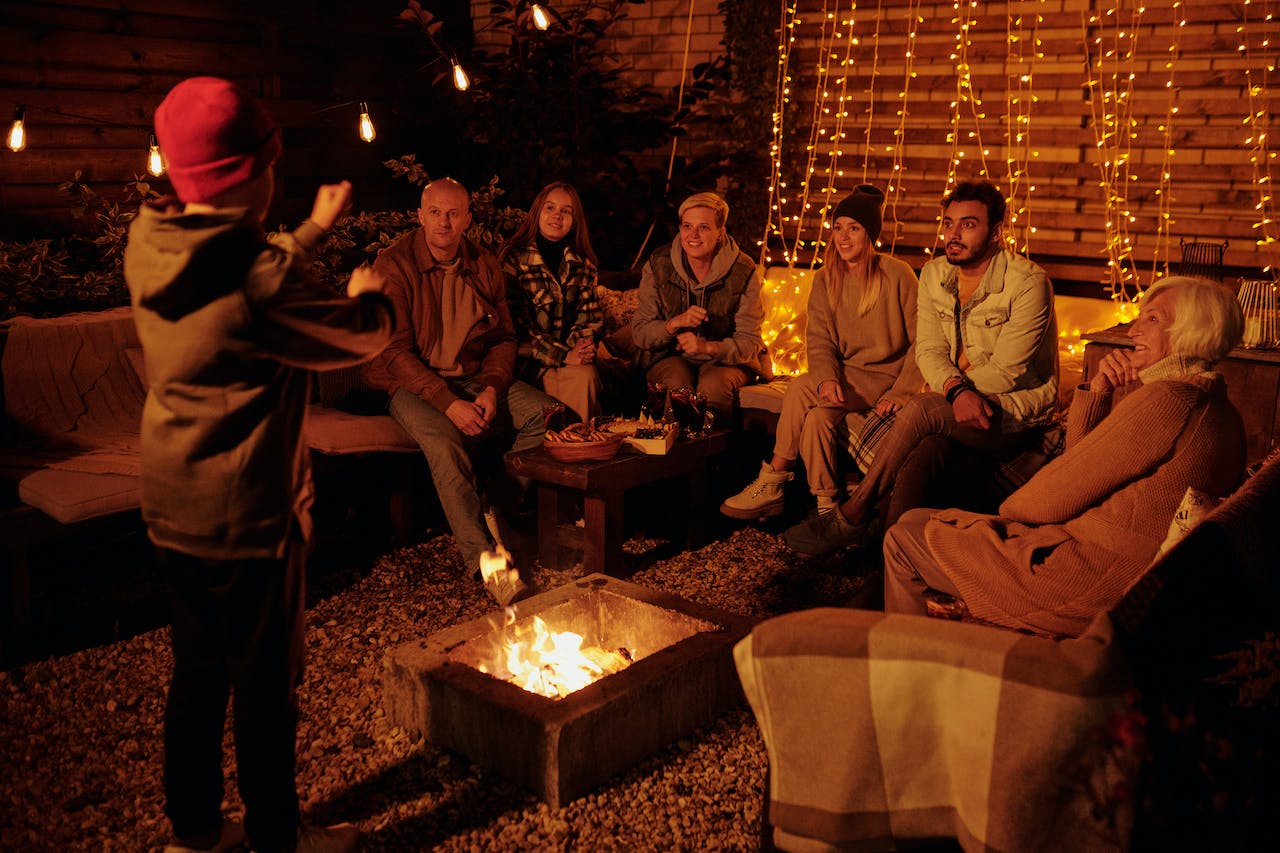How do you breathe when you are asleep?
When you sleep, do you breathe through your mouth, or through your nose? Many of us have never given this question any thought. Since sleep is a state in which consciousness is practically suspended, the way we breathe while asleep seems like something outside of our control. And until recently, that has been true.
However, there is increasing evidence that whether you are nose breathing or mouth breathing at night has significantly adverse effects on your short-term and long-term health. As it turns out, nose breathing is the far superior method of nighttime respiration.
In this article, we will explore why mouth breathing at night is the inferior option. We’ll break down in detail the multitude of problems associated with it. Finally, we’ll discuss a method that you can use to prevent breathing through your mouth while you sleep in order to secure superior slumber.

What exactly is mouth breathing?
When we refer to “mouth breathing” we are simply referring to when the body is respirating with the mouth open. While the mouth isopen, the body’s natural tendency is to inhale and exhale through themouth. This is what we refer to as “mouth breathing.” While the mouth isclosed, the body’s natural tendency is to inhale and exhale through thenose. This is what we refer to as “nose breathing.”
Although the difference between these two methods initially sounds inconsequential, as humans we are actually built to be primarily nose breathers.
Thankfully, mouth breathing is available as a backup option if the nose gets clogged, or during times of intense physical exertion when more oxygen is needed in the body. However, mouth breathing while sleeping can actually be harmful, as we’ll explore below.
How can I tell if I am mouth breathing at night?
Assuming that you don’t want to film yourself while you sleep - although that would be a very effective option - there are two ways to determine if you are mouth breathing at night. The first is if you sleep with a partner, you can ask them. Find out if it’s something they’ve noticed in the past, or if not, ask them to check next time they see you asleep. The second method is to check and see if you experience any of the problems listed below. If you are experiencing one or more of these, there’s a good chance you are mouth breathing while you sleep.
The 6 Problems with Mouth Breathing While you Sleep
Mouth breathing at night is associated with a multitude of issues that affect everything from your daily energy levels to your long-term health. Let’s dive into them.

1. Open Mouth Snoring
If you’re breathing through your mouth while sleeping, there’s a good chance you are snoring as well. And let's be honest, snoring is both extremely embarrassing to you as a snorer, and extremely annoying to anyone sleeping in the same room as you. But what if we told you that most people who snore could instantly stop snoring if they simply closed their mouth while they slept? Believe us. It’s true.
Most snoring is caused by the disrupted flow of air through your throat. When air can’t flow freely through your throat to your lungs, it causes your mouth tissues to vibrate. In turn, those vibrations create that familiar sound that is snoring. Not only does snoring detract from the quality of your own sleep, but it can also interfere with the quality of your partner’s sleep. This leads to irritability, daytime sleepiness, lack of focus, and, undoubtedly, relationship problems.
The good news? By finding a way to keep your mouth closed while you sleep, there’s a very good chance that your snoring will disappear. Forcing air through your nose will allow it to flow freely to your lungs, eliminating all that unnecessary and unpleasant vibration. “How do I do that?” you ask? We’ll get there.
2. Dry Mouth & Sore Throat
Do you wake up in the morning with your mouth feeling like the Sahara or your throat feeling like sandpaper? If so, your dry mouth or sore throat is likely caused by mouth breathing while you sleep. When you’re mouth breathing at night, the inside of your mouth is exposed to the air around you. This leads to the moisture evaporating at a significantly higher rate than if your mouth was closed. In turn this dries out the inside of your mouth and your airways.
Additionally, airborne particles flow directly into your throat, which can cause a sore throat when you wake up. When you breathe through your nose, your nose hairs filter out these particles. But without an air filtration system, mouth breathing for hours on end can lead to a sore throat and even illnesses, such as pneumonia.
3. Sinus or Nasal Congestion
Constantly waking up feeling congested is another common problem associated with breathing through your mouth while you sleep. At first thought, it seems logical that it is the nasal congestion that’scausing the mouth breathing. However, in reality it’s actually the opposite. Let us explain. It’s about to get sciencey in here.
You see, when you breathe through your mouth, your body is actually expellingtoo much carbon dioxide. This creates an imbalance, which causes your goblet cells to create mucus in order to slow your breathing. A vicious cycle is then created of more mouth breathing, leading to a higher CO2 imbalance, leading to more mucus production, leading to more mouth breathing. The result is mouth breathing all through the night and waking up in the morning feeling highly congested. No thank you.
4. Reduced Sleep Quality
One of the most impactful effects of mouth breathing at night is that mouth breathing can actually lower the quality of your sleep. All else equal, you will wake from 8 hours of nose breathing sleep feeling much fresher, more rested, and energetic compared to mouth breathing sleep. How does this happen, you ask? Strap yourself in, here comes more science.
Nitric Oxide Production:A naturally occurring molecule in the human body, nitric oxide helps tremendously with things like digestion, athletic performance, weight loss, mental health, healthy blood pressure, immunity, inflammation, and cognitive function. Nose breathing substantially increases the amount of nitric oxide circulating in the blood, providing these long-term health benefits. Mouth breathing does not.
Parasympathetic Response:Also known as the “relaxation response,” this physiological response can help counteract the negative effects of the body’s “fight or flight” response. Many of us are under constant stress throughout the day which can having damaging effects on our overall health and lifespan. Nose breathing has been shown to activate a stress-reducing response, allowing you to get more relaxed, restorative sleep compared to mouth breathing.
Carbon Dioxide-Oxygen Exchange: As mentioned before, when you breathe out of your mouth you are actually expellingtoo much carbon dioxide. In turn, this "over-breathing" creates an imbalance of carbon dioxide and oxygen. Since sufficient levels of carbon dioxide are necessary for proper brain and muscle function, mouth breathing at night can lead to suboptimal cognitive and physical performance.
5. Poor CPAP Compliance (for Sleep Apnea Patients)
If you have sleep apnea - and use a CPAP device - then you know better than anyone the detrimental effects of mouth breathing at night. You rely on your CPAP device to keep you breathing safely and effectively throughout the night. However, mouth breathing renders CPAP devices ineffective. Mouth breathing creates air leaks, which compromise CPAP efficacy as air delivered through the nose exits the open mouth before reaching the respiratory airway.
Beyond being potentially detrimental to the user’s health, the frequent stopping and starting of the machine can be extremely annoying and cause sleep fragmentation. Thankfully, there is a solution to help CPAP users overcome this problem.
6. Deteriorating Dental Hygiene
A secondary adverse effect of the dry mouth caused by mouth breathing at night is poor dental hygiene. This includes an increased likelihood of developing cavities, periodontal (gum) disease, and bad breath. When the mouth is closed, saliva continuously washes away bacteria in the mouth. However, when the mouth is open and saliva evaporates, this weakens the body’s defense against bacteria. This increases the likelihood of cavities, tooth decay, and other oral issues. Over long periods of time, mouth breathing at night can even lead to structural issues like teeth grinding, overbites, and underbites.
How to Prevent Mouth Breathing at Night
As discussed, there are many adverse effects of mouth breathing at night. From annoying snoring to mouth dryness to subpar sleep quality, when you breathe through your mouth while sleeping, it is clear that you’re not getting optimal sleep.
Thankfully, the key to getting great sleep is simple: close your mouth, and breathe through your nose. But how exactly do you do that?
Introducing Somnifix Strips, the proven solution to achieving your best sleep ever.
Somnifix Strips gently hold your lips together while you sleep, preventing you from mouth breathing and facilitating nose breathing instead. This ensures that you get your best, most restful sleep every single night. Wake up every morning feeling refreshed and ready to take on the day. Plus, as the number one solution to eliminating snoring, think of how much happier your sleeping partner will be!
We’ve helped over 100,000 people get better sleep. Are you ready to get your best sleep ever? Click here to learn more about Somnifix Strips and our 7-Night Somnifix Guarantee.






